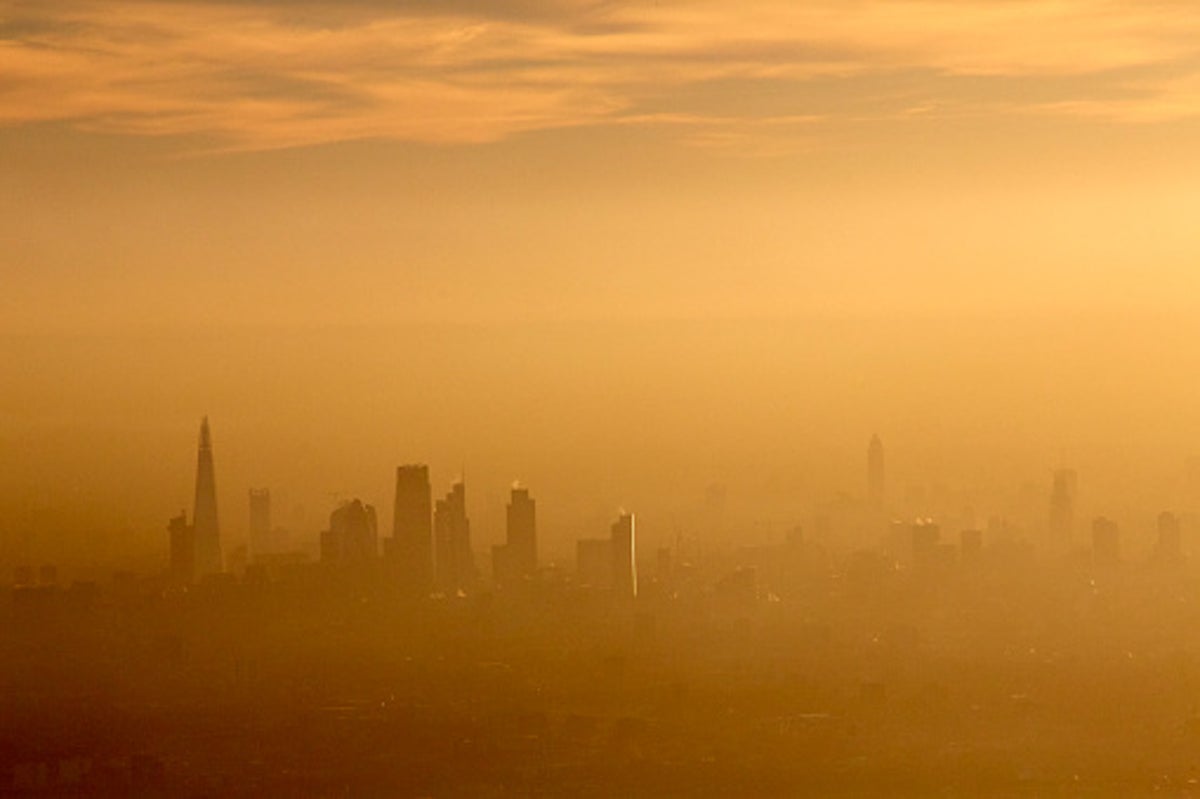
Toxic air in the UK is putting millions of people at risk of developing life-threatening asthma attacks and flare-ups, new estimates suggest.
According to a report published today by health charity Asthma + Lung UK, those with exisiting lung conditions such as asthma and chronic obstructive pulmonary disease (COPD) could find their symptoms triggered by toxic air, leading to potentially fatal complications.
The survey of more than 16,000 participants revealed that over half of people (53 per cent) with asthma and 47 per cent of people with COPD say toxic air is a trigger for their symptoms, which can include a tight chest, coughing and breathlessness.
In applying these figures to the general population of people with COPD, the charity has found this could equate to as many as 3.4 million people being affected by toxic air.
Asthma + Lung UK’s report also highlights that air pollution is affecting other aspects of people’s daily lives, including their ability to leave their homes, exercise and see friends and family.
Of 1,000 people with lung conditions surveyed, a third (33 per cent) said they do not leave their homes when air pollution is high.
Almost half (47 per cent) said air pollution prevented them from exercising outdoors, despite exercise being a vital means of managing lung health.
Meanwhile, one in six (17 per cent) said air pollution meant they didn’t see their family and friends as much as they liked, while almost a quarter (24 per cent) said air pollution made them feel low or depressed.
Almost 10 per cent reported having to move house to escape the pollution.
Leon, 73, from Aughton, west Lancashire, says he is “trapped in his home by air pollution ... My lungs have been sensitive to diesel and petrol fumes for as long as I can remember, but since being diagnosed with COPD in 2017, I’m trapped in my own home.
“On school days when there is lots of traffic near my house, I daren’t open the window or go outside, because if I do and the wind is blowing the wrong way, I can’t breathe.
“I’m left coughing and choking. It’s frightening.”
Leon said surges in harmful air pollition cause him to feel so low and so isolated that he can’t go out, “even in the garden,” he added.
“If I did go out when the air is thick with traffic fumes, I don’t know if I would make it back home again.
“What upsets me the most is that even my young grandson can see how much I’m struggling to breathe.
“People should know exactly what bad air can do to your body – it will kill you. There should be more information out there about the danger of car fumes and other sources of air pollution.”
Asthma + Lung UK is calling for the introduction of tougher legal air quality targets for England in order to reduce the levels of the most harmful types of pollution to human health by 2030, as per guidelines from the World Health Organisation.
It is also urging MPs to help those vulnerable to the effects of air pollution by reducing their exposure to harmful levels with better promotion of the national air pollution alerts system.
Of those surveyed, almost two-thirds (62 per cent) of people with lung conditions said they were unaware air pollution alerts existed, and more than three-quarters (77 per cent) said they didn’t feel the government was doing enough to protect them.
As part of its plea, the charity is asking the government to improve the health advice issued with the alerts and lower the thresholds for the alerts to be made.
Kate Langford, programme director of the health effects of air pollution programme at Impact on Urban Health, said: “Everyone should be able to work, learn and play without worrying about the air they breathe.
“Air pollution is a public health crisis and a social justice issue. It’s the greatest environmental threat to health and the effects are disproportionately offset onto people who do the least to contribute: children, older people and people with health conditions.
“But air pollution can be fixed. National and local government need to urgently act by investing in policies that improve air quality, and by working with businesses to reduce emissions.
“In the meantime, this report points to the need for consistent information on air pollution levels given to those whose health is most vulnerable, in the places they spend their time and from sources they trust.”







